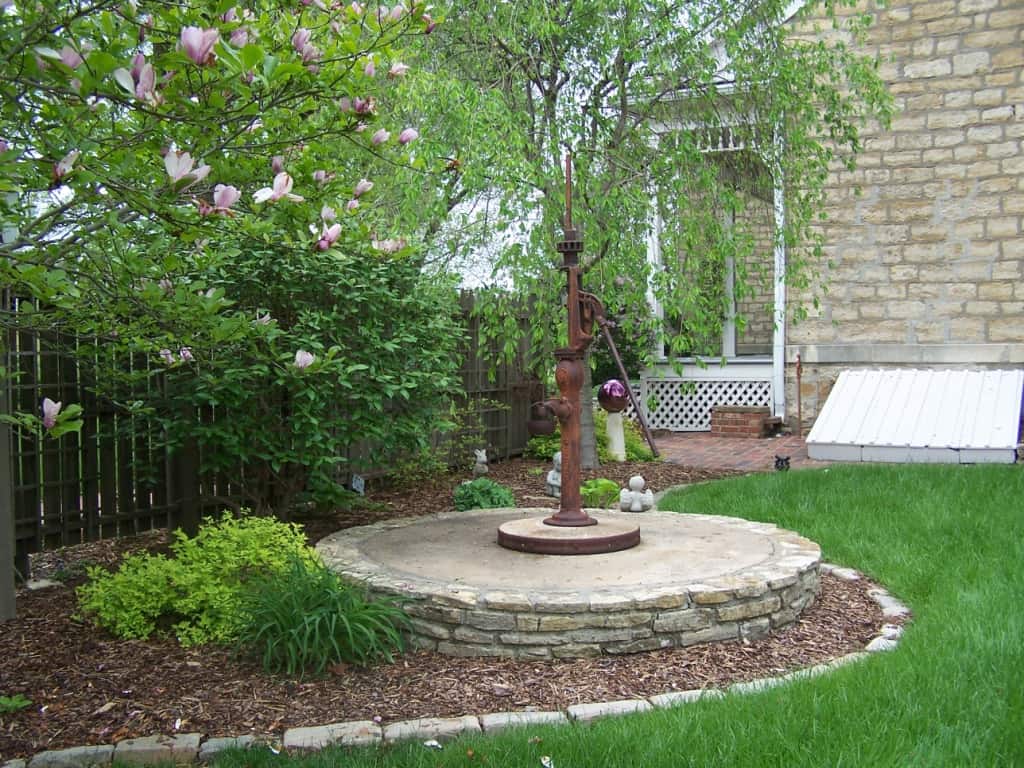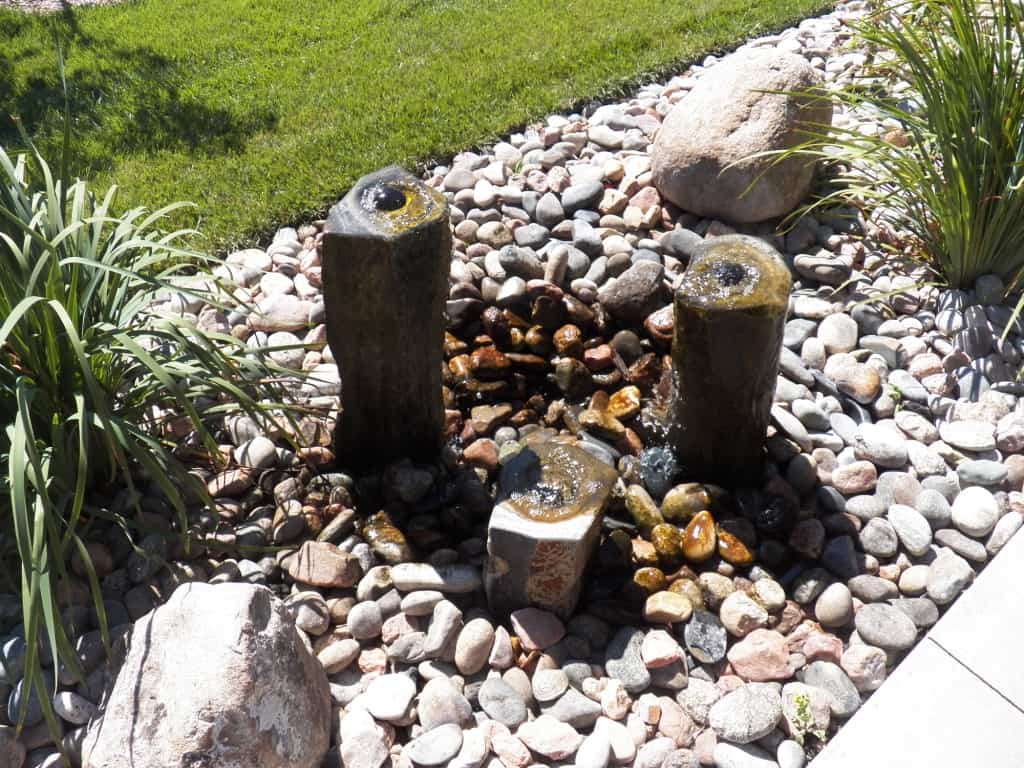There are many pros and cons to both rock and wood mulches. There is also a plethora of interesting opinions on both. You can find articles pointing to wood as the ultimate mulch and others who claim rock is the best. I hope to give you a good understanding of each so that you can make an informed decision on which is best for your specific needs.

Wood Mulch Characteristics:
- Light Weight. Wood mulch is easy to work with. With minimal effort you can transport and lay out this mulch. It is easy to transplant or add new plants to your landscape. It is also easier to access the soil below the mulch ( such as for plumbing or electrical issues). A con to its weight is that it can easily wash or blow out of the bed and onto sidewalks or other surrounding areas, especially when first applied.
- Fades in sunlight. The color of wood mulch can turn grey after being exposed to sunlight. It will need to be top-dressed each spring for best color. Wood mulch should not be more than 4 inches deep so only lightly add a new layer each year.
- Incorporates into the soil. This can be good for your soil. The mulch will slowly break down and as it does it increases the health of your soil. Mulch should never be mixed into the soil because there it will not break down and actually can harm your soil.
- No need for weed barrier. Weed barrier with wood mulch makes it blow away easily and therefore is highly discouraged. In the beginning, there will be more weeding required from a mulch bed, however, the mulch will eventually glue together after it starts to break down some which will help keep weeds from establishing. Also, not having weed barrier is a benefit because soil and plant debris is able to filter down to ground level where it will be a benefit to the plants. Weed barriers prevent such debris from reaching the soil and instead form a rich compost for weeds.
- Organic Material. Unlike rock, wood mulch gives a warm, soft impression. This is because it comes from plant materials which also tend to soften hardscapes such as patios, buildings, and sidewalks.
- Plants not contained. Because there is no weed barrier, plants are allowed to grow and spread out. Groundcovers need this so that they can reach the soil, root in, and cover the area. On the other hand, plants such as grasses will be free to spread in diameter and may reach undesirable widths.
Wood Mulch Uses:
Consider wood mulch if you are a gardener who likes to change things up from year to year. There is easy access to the soil for annual additions or changing bedlines. If you have a large patio or many hard construction materials such as brick on your house, consider an organic mulch to soften the abrasive feel from all the hard materials. Also, if you are a pureist when it comes to plants and enjoy watching them spread, wood is your mulch. While rock does not harm the plant, the weed barrier does restrict plant growth. Wood mulch also lends itself well to more natural and informal landscapes.
Convinced you want wood mulch?
Step 2: Learn more about the types of wood mulch.

Rock Mulch Characteristics:
- Durable. Rock mulch will not fade in the sunlight or slowly decompose and need replaced.
- Heavy Weight. Rock mulch will not easily wash or blow out of a landscape. It is also more difficult for pets to dig or move rock mulch and make a mess. On the other hand, it is also more difficult for you to move and adjust the rock mulch.
- Weed Barrier. Rock needs to have a weed barrier fabric underneath to keep the rocks from embedding into the soil. This weed mat will drastically reduce the number of weeds in your landscape beds for the first few years. Eventually, fallen leaves and other plant debris will build up on top of the weed barrier and the number of weeds will slowly increase. This process will be slowed if the bed is regularly maintained.
- Limits Spreading. Some plants such as grasses tend to spread out some as they age. Having rock and weed barrier will slow their growth although not stop it altogether. This is beneficial for keeping a tidy, organized appearance.
Rock Mulch Uses:
Consider rock mulch if you want to spend little time working with your landscape. The weed barrier makes plant placement a little more permanent. Rock gives a manicured, formal feel to the landscape. If you like to have your landscape neat and tidy or if you have pets who enjoy digging, rock is your mulch. Generally rock beds will need to be replaced every 15 to 20 years depending on the care they have received.
Is rock your mulch?
Step 2: Learn more about the types of Rock Mulch.



One thought on “What Kind of Mulch Should I Use? Rock or Wood?”